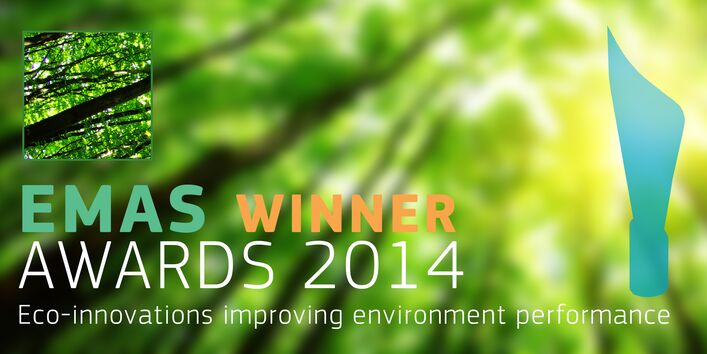Buildings
UBA has a high standard in the requirements to be met for the construction, maintenance and operation of its buildings. As part of the construction projects at its sites, UBA seeks to ensure that its construction measures meet strict climate and resource protection requirements, e.g. with regard to the materials used (recycled concrete, renewable raw materials, low pollution, etc.) and the supply of green electricity to buildings and construction sites.
The most important point is the avoidance of emissions. Against this background, desk sharing, which involves several employees sharing one workplace, in combination with mobile working is to be further developed and established at all locations. Despite growing staff numbers, the aim is to avoid erecting a second building extension or renting office space in Dessau or at the other sites.
Mobility
We want to continuously reduce the CO2 emissions of our fleet, applying 2016 as the base year. By 2030, the fleet is to be 'zero emissions' during operation
We have taken an important step towards more environmentally friendly travel with regard to emissions from business travel. The Federal Ministry of the Interior (BMI) has issued a circular order on the preferential use of rail instead of air travel. This creates the freedom to always opt for the most environmentally friendly mode of transport.
Almost 2,000 tonnes of CO2 are emitted annually by UBA employees on their way to work. As commuting to work is considered the private time of the employees, it is not included in UBA's greenhouse gas balance sheet. However, UBA wants to motivate its employees, as well as its contractual and cooperation partners, to reduce the CO2 emissions of their commutes to work, to shift them to environmentally friendly means of transport, and to offset them. The latest UBA mobility survey provides an overview of how environmentally friendly UBA is in this regard.
A further step towards reducing emissions from commuting is the introduction of mobile working, which allows employees to work from home for part of their working hours.
Procurement and award of contracts
In order to prevent awarding contracts for services that in principle can be performed in-house from leading to higher greenhouse gas emissions, UBA intends to include the greenhouse gas emissions generated by external service providers on its behalf in its greenhouse gas balance sheet. UBA does not currently know how high the CO2 emissions concerned are.
Our research contractors are required to comply with UBA's requirements regarding environmentally friendly procurement, business travel, printing and copying, and events. In 2020, we also intend to flesh out the requirements to determine the greenhouse gas emissions generated by outsourced research contracts. As soon as the requirements of public procurement law have been met, we intend to award all services on a greenhouse gas neutral basis.
Conferences
UBA determines the climate impact of its events covered by central event management. We aim to reduce this impact as far as possible and compensate for any remaining climate impact.
By 2020 we want to define and implement concrete requirements for the climate friendliness of the events we host and for offsetting the remaining climate impacts. By 2022 we want to hold only events that meet these requirements.
Additional objectives of environmental management
The scope of environmental management at UBA goes beyond a focus on greenhouse gas neutrality. The aim is to make use of the wide range of expertise and recommendations on environmental protection that are developed within the specialist units at UBA to make the Agency itself more environmentally friendly. Examples of targeted measures include the procurement of office equipment or the selection of building materials. This requires increased communication between UBA environmental management and the UBA specialist units.

